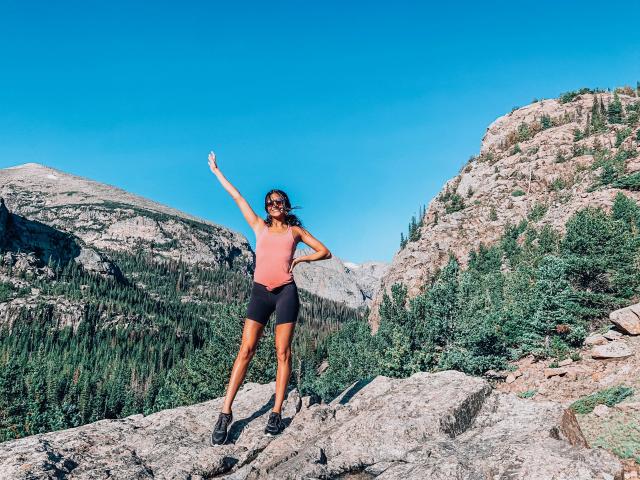Sustainability Journeys: Meet Keyana Mahallati

Please share a bit about yourself, what you do for work or study, and when you became interested in sustainability.
My name is Keyana Mahallati (she/her). I’m currently majoring in Interdisciplinary Medical Sciences and minoring in chemistry. I plan on taking a gap year before applying to medical school. In the meantime, I am shadowing and volunteering at various medical facilities between Tallahassee and Pensacola. I became interested in sustainability in my junior year of high school after watching a few documentaries on Netflix about how a plant-based diet can dramatically reduce the emission of greenhouse gases. After slowly reducing my meat consumption and eventually becoming vegan, I started looking up other daily steps I could take to further reduce my footprint.
What adjustments have you made to your sustainable lifestyle since COVID-19 interrupted much of our daily lives?
One change I have made is biking and walking to a lot of places that are close to my home. I used to drive a lot because I was either on a time crunch or needed to travel to campus, which was too far away for a bike ride. With more time on my hands and fewer places to be, it is much easier for me to ride my bike to the store or to the beach instead of getting in my car just for a few minutes of driving. This is not only great for the environment but also a great way to implement some activity into one’s life during these times of isolation.
How has your interest in sustainability shaped your career/studies?
Since a big part of my life now is veganism, it has had a huge impact on my outlook of healthcare. It’s often thought that putting unprocessed, healthy foods into our bodies is a tool to aid us internally. While this is true, the choice to do this also has a huge external impact on our environment. We can transform our bodies while simultaneously helping our environment not only survive but thrive in a world where we decrease our greenhouse emissions by not contributing to mass deforestation and animal agriculture. My love for healthcare has blossomed and I want to share my knowledge and be an advocate for a healthy and sustainable lifestyle.
Set the record straight: what’s one common myth or misconception about sustainability that you wish people knew more about?
Not everything sustainable is expensive! This is such a huge misconception people have when it comes to sustainability. Getting a reusable water bottle and maybe even a water filter is so much cheaper than constantly buying cases of bottled water. This goes for plastic bags/items as well. While the initial cost of a pack of zip lock bags is cheap, you have to rebuy this item over and over again. If you instead buy glass food containers or reusable zipper containers you are saving so much money in the long run and helping the environment!
Any tips or tricks for people who are just beginning their sustainability journeys?
Start small. It can be overwhelming to jump in too fast and feel like you have to make all these changes at once. You can start with changing one thing whether it be buying a sustainably made toothbrush instead of a plastic one, cutting out meat one day of the week, or carpooling to school/work with a friend. No one is perfect! We all run into problems and have setbacks when trying to lower our footprint on this Earth. Do not guilt yourself or let anyone else guilt you if you make a mistake along the way. Get back on track and try again. Remember that while it may seem like your small changes have little to no impact, there are others out there also making the same changes, and they do add up!
Sustainable Campus would like to thank Keyana for sharing her Sustainability Journey with us. Have an interest or career in sustainability? We'd love to hear from you! Email our Communications Coordinator, Michelle Presley at mpresley2@fsu.edu with the subject line: Sustainability Journeys.
